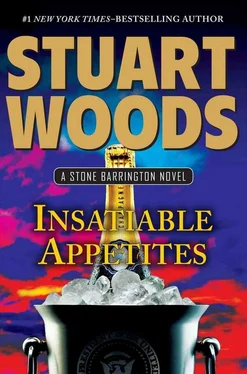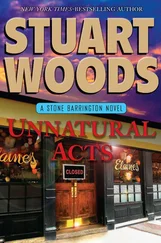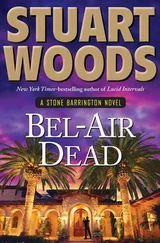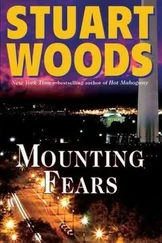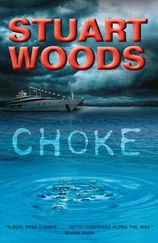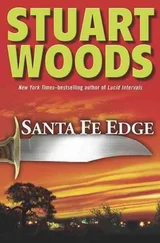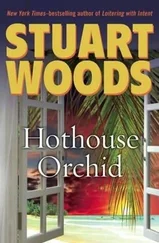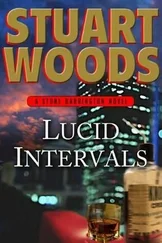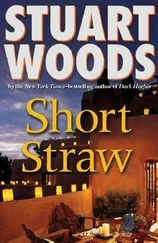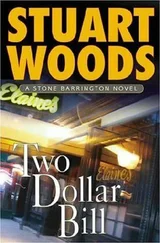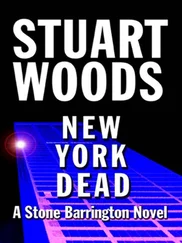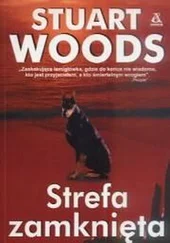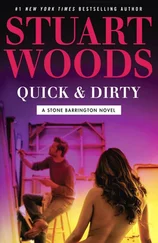“Quite,” she said.
“And you may watch the New York Times for a thorough debunking of your position and an account of Charles Magnussen’s little joke on the art world.” He hung up and called Dino. “Call off the art squad,” he said.
“I thought I would hear you say that when you broke off our call. You had Mary Ann on the line, didn’t you?”
“Yes, and Raoul Pitt and I got the whole story from Magnussen’s girlfriend.” Stone told him about their trip downtown.
“That’s a great story, Stone, you’ll dine out on it for years.”
“I certainly will.”
Stone called Mary Ann, who was greatly relieved to get the news. “I’m delighted, but something else has come up,” she said.
“What now?”
“I received a telephone call today from the mother superior of the convent where Dolce recovered from her illness.”
“Yes?”
“She told me that Dolce had psychiatric counseling for more than a year after her arrival there.”
“I’m glad to hear it. It seems to have worked.”
“That’s what the mother superior thought, but apparently it worked a little too well. Dolce and her psychiatrist formed a closer relationship than had been intended. This was confirmed to her by a novitiate who had come upon them in flagrante delicto in a storeroom Dolce used as a studio. The psychiatrist was removed from the case at once.”
“Why would the mother superior call you about that at this late date?”
“Because she read the name of the psychiatrist in the Italian newspapers,” Mary Ann said. “He was a brilliant man in a number of fields, by all accounts, who left Sicily to join the Vatican Bank in an important position. He was an Irish priest named Frank Donovan.”
Stone froze in his seat.
“You do read the papers, don’t you?” Mary Ann said.
“I’m sorry, yes, I know to whom you are referring.”
“Stone, it is very important that Dino not hear about this from you.”
“Then from whom should he hear about it? Are you going to tell him?”
“Certainly not, and if you have any respect for the memory of my father and for your duties as his executor, neither will you.”
“Mary Ann—”
“Listen to me, Stone. Even if it were known that Dolce knew him, there is nothing whatever to connect them after he went to the Vatican. Nothing.”
“Why do you think that?”
“Because if a connection were known, Dolce would already have been questioned by the police.”
“I expect that is true, but—”
“No buts,” Mary Ann said firmly. “You cannot subject my father’s name and his family’s reputation to the kind of public scrutiny that would occur if the police could connect Dolce with Father Donovan in any way at all, even if they could be shown never to have met during Father Donovan’s brief visit to New York.”
“Very brief visit.”
“I’ve spoken to the cardinal, and he assures me that Father Donovan came to New York on Vatican business and stayed at an Opus Dei facility for visiting priests and dignitaries. He made no mention of having seen anyone outside the archdiocese during his stay there. The cardinal believes him to have been a victim of street crime, and that is what I believe, too.”
“Then why are you telling me all this?”
“Because I knew that if you or Dino — particularly Dino — heard of the connection between Dolce and Donovan, you would draw the wrong conclusions, and before the investigation was complete, a great deal of harm would have been done to all concerned.”
“Except to Father Frank Donovan.”
“Especially to the priest, whose reputation would be destroyed, and to the Vatican, which would be greatly embarrassed for no good reason.”
“I understand your views, Mary Ann, and I will keep them in mind.”
“Please see that you do.” She hung up.
Stone hung up, too, shaken and worried.
Bruce Willard drove his own car, an old Mercedes station wagon that he used mostly for buying trips, to Philadelphia, following the confident instructions of a dash-mounted GPS. He followed the directions numbly, trying not to think of Evan for a while.
As he neared his destination he began looking for a driveway or a mailbox but saw neither. Then the female voice of the GPS began to insist that he make a U-turn. He did so and retraced his track until the U-turn message came again. This time he slowed down to ten miles per hour, but he still nearly missed an overgrown, gravel track: no street number, no mailbox. He turned into the track and proceeded slowly, branches on either side scraping against the car. After a quarter of a mile or so the little road widened and became paved with granite cobblestones, winding through a corridor of old oak trees until he passed through a high, wrought-iron gate and into a forecourt before a large brick house of the Federal style — three stories, the corners and windows trimmed in limestone. The place practically gleamed with good care and fresh paint.
As he came to a halt the front door opened and an Asian man in a white jacket, black trousers, and black bow tie trotted down the front walk to the car.
“Good morning. Mr. Willard?”
“I am,” Bruce replied.
“May I take your luggage?”
“There’s just the duffel in the backseat.”
“I am Manolo,” the man said. “I take care of Mr. Hills. Please follow me.”
Bruce trailed him up the walk and into the house and a broad foyer containing a Georgian table so beautiful that he had to resist stroking it, upon which rested a heavy silver bowl filled with fresh flowers.
“The living room is to the left,” Manolo said, pointing, “and the library to the right. Your room is upstairs.” He trotted up the broad staircase and opened the first door down the hallway to the right. “This is the Elm Room,” Manolo said. “Mr. Hills hopes you will be comfortable here.”
Bruce surveyed the room — the canopied bed, the comfortable chairs before an Adam fireplace, the good pictures, the fine fabrics. “I’m sure I will be,” he said.
Manolo opened the door to a dressing room. “Would you like me to unpack for you?”
“Thank you, that won’t be necessary.”
“Mr. Hills expects you for lunch in half an hour,” the man said. “He will meet you in the library.”
“How are we dressing?” Bruce asked. He was wearing a blue suit and a necktie, since he did not know if he would have time or a place to change before the funeral.
“You are perfectly dressed, sir. Is there anything else I may do for you?”
“Thank you, no, Manolo. I’ll be down in thirty minutes.”
Manolo left, closing the heavy mahogany door softly behind him. Bruce took his toiletry items into the big marble bathroom, splashed some water on his face, then took off his jacket and sat in a comfortable chair for a few minutes, still numb.
At the appointed hour Bruce put his jacket on again, adjusted his necktie, and walked downstairs to the library. A man was sitting at a desk, wielding a magnifying glass, examining an album of stamps. He looked up and stood. “Good afternoon, Mr. Willard,” he said.
Bruce thought he looked exactly as Evan would have looked in thirty years: slim, beautifully tailored, with thick white hair.
Elton Hills came around the desk and offered his hand, then directed Bruce to a wing chair before the large fireplace, where a fire burned brightly. “Would you like a glass of sherry before lunch?” he asked.
“Thank you, yes.” He sat down, and a moment later Manolo appeared with a silver tray bearing a black bottle and two glasses. He poured the wine and handed it to Bruce and Mr. Hills, then left.
“It’s a fino, nicely chilled,” Hills said. “It won’t get you drunk before lunch.”
Читать дальше
